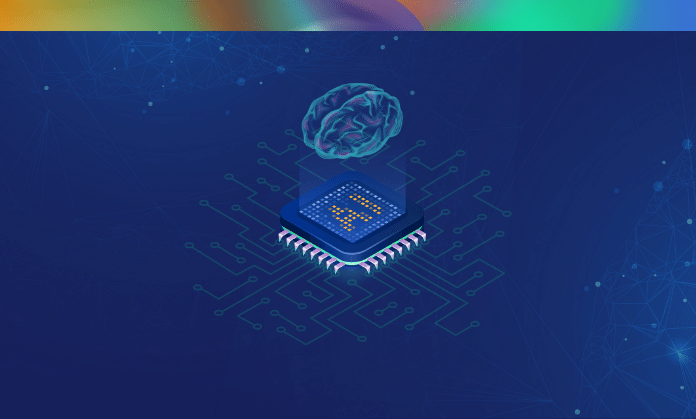How is AI Making a Big Impact on Healthcare?

Artificial intelligence (AI) can change the way healthcare is delivered. According to the research, healthcare looks into how it may help enhance medical results, patient experience, and access to healthcare services.
It has the potential to increase the productivity and efficiency of healthcare delivery. AI can help healthcare providers. It can improve their experience by allowing them to spend more time on direct patient care while also lowering stress.
Medical technology has advanced significantly, resulting in increased life expectancy worldwide. Nonetheless, as people live longer, healthcare systems face increased demand for their services, rising expenses, and a straining staff to fulfill the demands of its patients.
Traditional analytics and clinical decision-making methodologies have significant disadvantages when compared to AI. Learning algorithms can become more precise and accurate as they interact with training data.
What is Artificial Intelligence?
Artificial intelligence uses various software technologies to create a system. They allow a machine to function similarly to a human brain. It combines data science, machine learning, data analytics, and automation, among other things.
Designing artificial intelligence to make life easier. We frequently find many explanations and examples in science fiction films and novels.
However, it is not the same as demonstrated and stated. Artificial intelligence is still in its early stages, not as advanced as it appears, and when employed appropriately. It has relatively little detrimental influence.
How does AI impact healthcare?
-
Brain-computer interfaces unify mind and machine:
Using computers to communicate isn’t a new concept, but creating direct connections between technology and the human mind without keyboards, mice, or displays is a cutting-edge area of research with significant implications for some patients.
Some patients’ abilities to talk, move, and connect meaningfully with others and their settings can be taken away by neurological illnesses and injuries to the nervous system.
Artificial intelligence-assisted brain-computer interfaces (BCIS) may be able to recreate such real-life experiences for individuals who worry they may be gone forever.
-
Development of radiological instruments for the next generation:
MRI machines, CT scanners, and x-rays provide radiological pictures that provide non-invasive insight into the human body’s inner workings. However, many diagnostic procedures still rely on actual tissue samples taken through biopsies, which come with hazards such as infection.
Healthcare integration engines bridge the gap between different technologies in your organization. For example, if electronic medical records are used alongside similar technologies. The integration engine will help all of these systems communicate.
Experts expect that artificial intelligence will enable the next generation of radiological instruments to be precise and comprehensive enough to eliminate the requirement for tissue samples in some circumstances.
-
Increasing access to treatment in underserved or developing areas:
In developing countries worldwide, shortages of qualified healthcare workers. Such as ultrasound technologists and radiologists, can severely limit access to life-saving care.
Artificial intelligence may be able to assist in minimizing the effects of the significant shortage of skilled clinical personnel. Through taking over some of the diagnostic tasks that humans normally perform.
-
Reducing the constraints of electronic health record use:
EHRs have played a critical part in the healthcare industry’s digitization journey. Still, the changeover has resulted in many issues such as cognitive overload, unending paperwork, and user fatigue.
EHR developers use artificial intelligence to design more intuitive interfaces and automate mundane activities that take up much of a user’s time.
Although voice recognition and dictation assist in improving clinical documentation, natural language processing (NLP) techniques may not go far enough.
Smart gadgets dominate the consumer environment. By giving anything from real-time video from inside a refrigerator to automobiles that can detect when the driver is distracted.
-
Adding intelligence to medical equipment and machines:
In the medical profession, smart gadgets are critical for monitoring patients in ICUs and other settings. For example, artificial intelligence increases the capacity to detect deterioration and the onset of sepsis.
Detect complications can improve outcomes and lower expenditures associated with hospital-acquired conditions penalties.
-
Making the electronic health record a trustworthy risk predictor:
The electronic health record (EHR) is a treasure mine of patient data, but obtaining and analyzing that wealth of data quickly and accurately. Unfortunately, trustworthiness has been a constant problem for clinicians and developers. The reason for EHR integration is to improve healthcare workflow and data sharing. It is one of the leading and crucial factors for achieving healthcare interoperability.
It’s been challenging to grasp how to participate in effective risk stratification, predictive analytics, and clinical decision support. Due to data quality and integrity difficulties, a jumble of data formats, structured and unstructured inputs, and missing records.
-
Wearables and personal gadgets for health monitoring:
Almost all customers now have access to devices with sensors that capture useful data about their health. A rising amount of health-related data is created on the road. Such as cellphones with step trackers to wearables that can detect a heartbeat around the clock.
Collecting and analyzing this information and complementing it with information supplied by patients via apps. Other home monitoring devices can provide a unique perspective on individual and population health.
Artificial intelligence will be critical in extracting useful information from this huge and varied data source.
The future of AI in healthcare:
Over the next several years, the biggest potential for AI in healthcare will be hybrid models. Professionals are assisted in diagnosis, treatment planning, and risk factor identification while maintaining ultimate responsibility for the patient’s care.
Healthcare providers will be more likely to employ the technology by reducing perceived risk, and measurable benefits in patient outcomes. Operational efficiency will deliver at scale.
We believe that AI will play a significant role in future healthcare products. For example, it is the key capacity underpinning the creation of precision medicine. Advancement in treatment is much acknowledged by the universe.
Although early attempts at diagnosis and therapy suggestions have been difficult, we believe AI will eventually master that domain.
Conclusion:
AI will usher in a new age of clinical excellence and exciting discoveries in inpatient care by powering a new generation of tools and systems. It makes clinicians more aware of subtleties and more efficient when giving treatment.
Visit intelyConnect for all the help and services you’ll need to leverage our sophisticated healthcare AI solutions to improve your healthcare services.
In addition, we’ll show you how to integrate AI and other relevant services into your practice effectively.
To read more articles click here




